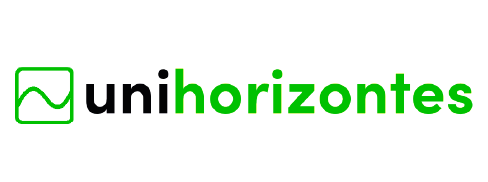Autor: ANTÔNIO CARLOS SOARES PEREIRA
Tipo de Trabalho de Conclusão: DISSERTAÇÃO
Data da Defesa: 12/08/2010
RESUMO Diante da importância das empresas familiares para a economia brasileira e a mundial e da escassez da literatura sobre o papel do fundador e mito organizacional no processo de sucessão de organização familiar, o objetivo geral deste estudo constituem: analisar as facilidades e dificuldades presentes no processo de sucessão do fundador e mito organizacional de um grupo empresarial familiar. O referencial teórico baseou-se nos conceitos de cultura organizacional, fundador e mito organizacional, características das empresas familiares, sucessão em empresas familiares, modelo tridimensional de desenvolvimento e desenvolvimento das dimensões propriedade, família e empresa. A abordagem de pesquisa estabelecida foi a qualitativa, do tipo descritivo, com base no método de estudo de caso, aplicada a um grupo empresarial familiar localizado em Montes Claros (MG), com 28 anos de existência, que atua nos segmentos de comércio e prestação de serviços, atualmente com três empresas e que vive o processo de sucessão. Os sujeitos da pesquisa foram: o fundador, quatro filhos herdeiros da segunda geração, dois funcionários não familiares e um ex-funcionário. A coleta de dados foi realizada por meio de entrevistas semiestruturadas, análise de documentos disponíveis e observações livres. A análise dos dados, que aconteceu por meio da técnica de análise de conteúdo, revelou que a empresa familiar tem seu fundador considerado mito organizacional pelos seus feitos extraordinários, constante na história do grupo. Os sucessores têm perfil de autoritarismo, centralização e individualismo, mas contam também com os valores adotados e reforçados pelos herdeiros, tais como, honestidade e seriedade no trabalho, compromisso com a qualidade e respeito às pessoas, funcionários, clientes e fornecedores. Os principais fatores que facilitaram a sucessão foram: confiança nos ideais do fundador, abertura de uma empresa para cada filho, admiração pelo exemplo que o pai exercia e sua acessibilidade e disposição em ajudar. Os fatores que atrapalharam a sucessão foram: comparações entre os sucessores e o sucedido e falta de planejamento de longo prazo. As características dos herdeiros são diferentes, principalmente entre os gêneros, com as mulheres mais organizadoras e planejadoras e os homens com capacidade de empreender e tino comercial. Na dimensão da empresa, o estágio do grupo está caminhando para a maturidade, mas ainda sem planejamento e sem um conselho administrativo. A dimensão da família está no estágio de passagem do bastão, mas com conflitos de relacionamento, que precisam ser abertos e discutidos de forma clara. Na dimensão propriedade, o grupo situa-se no estágio de sociedade entre irmãos e requer cuidado especial e maior formalização das ações. Sugere-se a continuidade dos estudos iniciados em relação aos conflitos gerados na família e às formas de solucioná-los, visando a continuidade da empresa.
Palavras Chaves: Empresa familiar. Sucessão. Mito organizacional.
ABSTRACT Before the importance of the family companies in the Brazilian and world economy and for the literature shortage on the founder myth role in the succession process, allied to the interest of studying the aspects tied to the family organization, it was constituted the general objective of this study: to analyze the facilities and difficulties in the succession process of the founder myth of a family business group. The theoretical framework was based on the organizational culture, organizational founder and myth, family companies concepts and characteristics, three-dimensional development model and the development of the property, family and company dimensions. The established approach was the qualitative, descriptive type, through the case study method, in a family managerial company, located in Montes Claros-MG, with twenty eight years of existence, acting in the trade and services rendered segments, now with three companies and living the succession process. The subjects of the research were the founder, four second generation heirs children, two no-family employees and a former-employee. The collection of data was accomplished through semi-structured interviews, available documents and free observations. It was also used survey and analysis of the literature. The analysis of the data happened through the technique of content analysis. The analysis of the data revealed that the family company has your founder considered organizational myth for his extraordinary achievements, constant in the group history. The successors have an authoritarianism, centralization and individualism profile, but they also counts with the adopted and reinforced values by the heirs, such as the honesty and seriousness in the work, commitment with the quality and respect to people, employees, customers and suppliers. The main factors that facilitated the succession were the trust in the founder, the opening of one company to each son, the admiration for the example that the father exercised; his accessibility and disposition in helping. The factors that disturbed the succession were the comparisons among successors and founder myth; the lack of a long term planning. The heirs profiles are mainly different among genders, with most organizer and planner women and men with capacity to undertake and commercial intuition. In the company dimension, the group stage is walking to the maturity, but still without planning and administrative council. The Family dimension is in the stick passage stage, but with relationship conflicts that need to be opened and discussed in a clear way. In the property dimension, the group is in the “society between brothers” stage, and it requests special care and larger actions formality. The continuity of the studies is suggested in relation to the conflicts generated in the family by the organizational myth dedication to the work.
Key words: Family company. Succession. Organizational myth.
Área de Concentração: ORGANIZAÇÃO E ESTRATÉGIA
Linha de Pesquisa: Relações de Poder e Dinâmica das Organizações
Banca Examinadora
Prof.ª Dr.ª Adriane Vieira – Orientadora
Prof. Dr. Juvêncio Braga de Lima – Docente
Prof.ª Dr.ª Vera Lucia Cançado – Participante externo
Baixar arquivo: Antônio Carlos Soares Pereira
